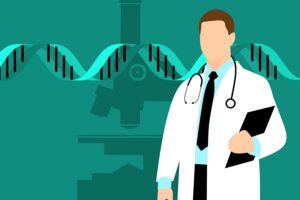What are the health benefits?
Are eggs good for you? Eggs are one of the greatest forms of nutrition and I personally consume four to six eggs per day.
There was a time when we were told that too many eggs were bad for us and that information changed to eggs being good for us. This information has flipped backwards and forwards so many times that it is easy for a number of myths to hang around – for a long time.
What's so great about eggs?
1. Eggs are almost the highest form of protein that we could hope for and they guarantee 48% protein per egg. This is really high and it is only human breast milk that comes higher.
2. Eggs are loaded with vitamins, minerals and trace minerals. They contain vitamin D and K2, which is a great combination, because while the vitamin D helps us to assimilate more calcium from our food, the K2 makes sure that this calcium ends up in our bones and teeth – not our arteries!
3. Eggs are high in Choline which is a substance that aids our digestion of food.
4. Eggs contain all 21 essential amino acids, which means it can be assimilated by the body right away. Without all 21 essential amino acids, we can not fully digest a protein until we have all 21 to break them down.
5. Eggs contain vitamin E, which is great for our skin and hair, while good levels of vitamin A (carotenoids
) do amazing things for our eyes!
6. Eggs can help us to lose weight because they play an integral part in following a ketogenic diet. They are also very filling and come in handy if we are intermittent fasting.
Which eggs are the best?
Personally, I go for two things:
I prefer to buy free-range eggs, rather than eggs from caged hens. First of all, caged hens are not well looked after and I have a moral feeling toward the welfare of these animals. Secondly, I prefer to know that the hens have been able to wander around a farm, eating the correct food (not GM grains) and that their eggs are picked up from where the hens laid them. If you can find eggs laid by hens that have been pasture-raised, that’s even better. Oh, there is one more possibility – if you have the room on your property, why not raise your own hens in your back garden?
Should I remove the yolks?
The egg yolk contains a lot of fat, but this is a healthy fat and you must remember that our bodies require fat within our diet – so that we can absorb the ‘fat soluble vitamins’ that exist within the eggs. Also, if we remove the yolks, we lower the amount of protein that the egg contains!
What about the high levels of cholesterol?
For years, we have been told that eggs are too high in cholesterol, but I can assure you that this information is not correct. Eggs WILL add to our cholesterol levels but the type of cholesterol is called HDL and this is a healthy cholesterol that our bodies require! However, it won’t stop people from telling you that you’re going to have a heart attack!
Can I eat raw eggs?
A great many athletes practised eating raw eggs for decades (just like Rocky!), but when salmonella appeared in the 80s, this became a risky practice. I recommend that if you intend to use raw eggs in a drink of some sort, you should submerge the egg into boiling water for at least thirty seconds. This allows part of the egg to be destroyed and it reduces our chances of contracting salmonella food poisoning. Also, thirty seconds is not enough time for the egg to begin cooking.
Does the yolk colour tell me about the nutrition?
Unfortunately it doesn’t – in fact, many farmers add dyes to meat and eggs, to convince us that they are more healthy! Knowing this may get us to question: Are eggs good for you?
In this video, Doctor Berg discusses the many benefits of consuming eggs.



